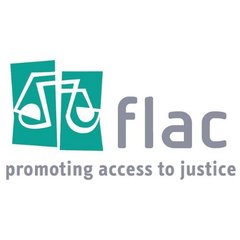Press Release: FLAC call for new programme for government to include access to justice and root and branch review of civil legal aid.
17 April 2020

FLAC Chief Executive Eilis Barry has today called on party leaders engaging in government formation talks to ensure that access to justice is part of a new social contract and that a root and branch review of the civil legal aid reform would be included in the forthcoming Programme for Government.
Before the General Election, FLAC contacted candidates to inform them of the long wait times, strict means test, exclusions and limitations in accessing civil legal aid through the Legal Aid Board, the statutory body responsible for administering civil legal aid in the State.
Eilis Barry said,
“FLAC has called for an urgent root and branch review of the entire civil legal aid scheme to be included in the programme for government. Access to justice needs to be seen as an essential part of a functioning democracy and resourced and prioritised accordingly in the new programme for government.
“Access to justice also includes being able to access the courts. Some of the most vulnerable members of society seeking to resolve family law proceedings have been faced with wholly unsuitable court facilities. It is important to note that as the Courts have been closed to non-urgent business during the Covid-19 crisis, all of the normal difficulties that face individuals that lead them to engaging in the courts are continuing, access and maintenance orders and other family law matters, will remain outstanding and will need to be dealt with in an already under resourced system.
“The allocation of required funding for the establishment of dedicated and integrated Family and Children’s Courts in Hammond Lane, Dublin and around the country must also be prioritised in the new programme for government.
/ENDS
Details of FLAC’s #Right2Justice Campaign is available on our website at: https://www.flac.ie/news/2020/01/22/flac-calls-on-candidates-to-support-a-right-to-jus/
FLAC has a handy reference guide to the main differences between the criminal and civil legal aid schemes on our website at: https://www.flac.ie/publications/guide-differences-in-criminal-and-civil-legal-aid/
About FLAC (Free Legal Advice Centres):
FLAC is a human rights organisation which exists to promote equal access to justice. As an NGO, FLAC relies on a combination of statutory funding, contributions from the legal professions and donations from individuals and grant-making foundations to support its work.
FLAC offers basic legal information through its telephone information line (1890 350 250) and free legal advice through its network of volunteer evening advice centres – more at www.flac.ie/help/.
FLAC is an Independent Law Centre that takes on cases where this is in the public interest. FLAC also campaigns on a range of issues, including consumer credit, personal debt, fairness in social welfare law, public interest law and civil legal aid. FLAC operates the Public Interest Law Alliance (PILA), which seeks to engage the legal community and civil society in using the law to advance social change.
FLAC has recently worked to improve access to justice in particular for Roma and Traveller women as part of the JUSTROM (Joint Programme on Access of Roma and Traveller Women to Justice) programme, a Council of Europe initiative. The pilot programme aimed to increase Roma and Traveller women’s awareness of their rights and existing complaint mechanisms, with a particular focus on anti- discrimination and equality of opportunity. Within JUSTROM, FLAC supported the running of legal clinics for Travellers and Roma. FLAC with the financial assistance of the Department of Justice currently operates a legal clinic for the ROMA community. It also within its limited resources continues to engage in legal representation for members of the Traveller community, primarily in the area of accommodation provision. The experience of those clinics and litigation is drawn on in the ICERD submission to highlight specific matters of importance to achieving equality for those communities.